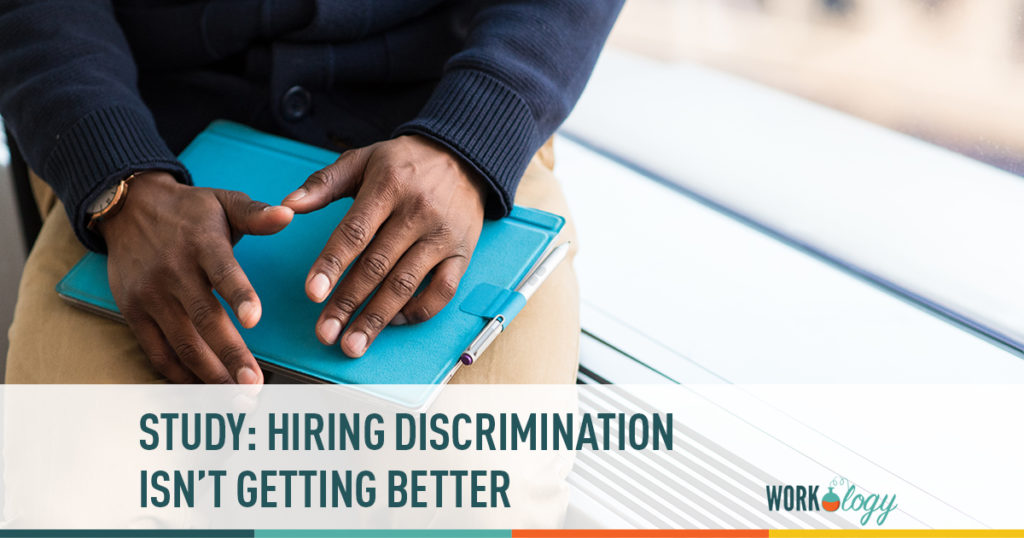According to a new study there has been little to no progress in reducing racial hiring discrimination since 1989. Researchers from Northwestern University, Harvard, and the Institute for Social Research in Norway looked studies on resume and interview discrimination in the past 28 years, looking for trends in the data. And boy did they find one – little to no progress.
The researchers analyzed studies on resume discrimination – where resumes with randomized ethnic names are submitted – and interview discrimination – where candidates with identical credentials but different demographic backgrounds go for in person interviews – and found that what was true in 1989 is still true today: white candidates get more callbacks and get further in the hiring process. They say that
On average, white applicants receive 36% more callbacks than equally qualified African Americans (95% confidence interval of 25–47% more), based on random-effects meta-analysis of data since 1989, representing a substantial degree of direct discrimination. White applicants receive on average 24% more callbacks than Latinos (95% confidence interval of 15–33% more).
If you’re curious about their methodology (yes, they did account for differences in methodologies over time) or want to learn more about their results, you can find their full report here.
Hiring Discrimination Isn’t Getting Better
Hard data on hiring discrimination is crucial because it’s all too usual for businesses, and even HR departments, to brush it off because they think they’re doing everything they can to stop it. In addition to setting the stage for internal or industry-wide initiatives to lessen employment discrimination, this type of meta-analysis demonstrates the pervasiveness and systemic nature of the problem.







